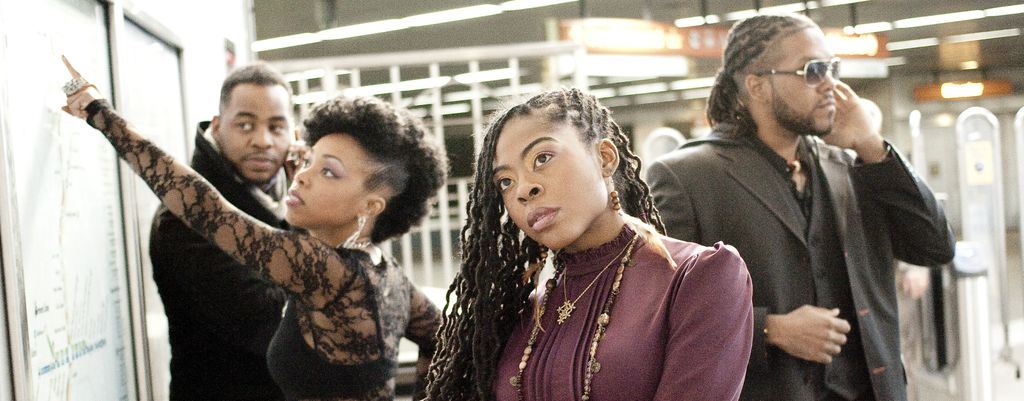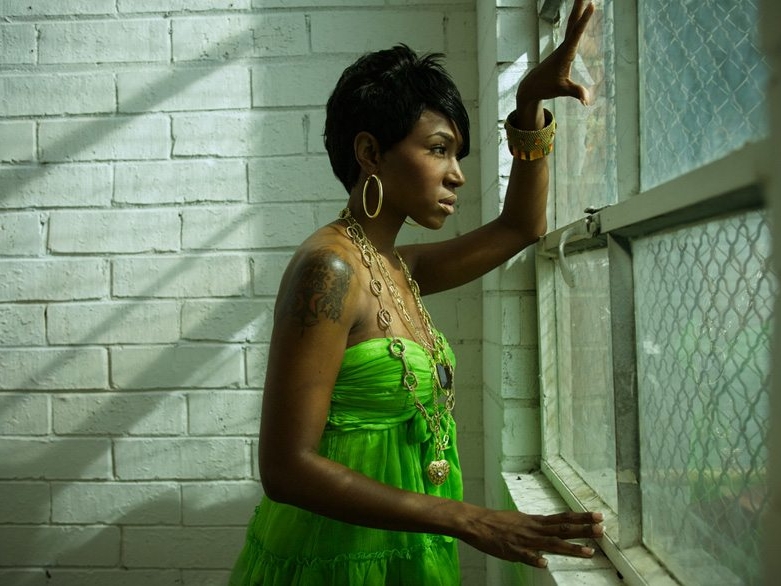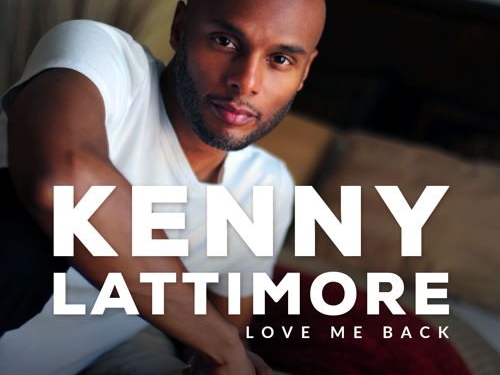Water Seed takes us on a journey with their second installment from Wonder Love Part 1, Hues of Blue. A homage to the complications of falling in love and losing. The never ending conflict of following your head or your heart.
What do you call a musical gumbo that recalls the ancestral strut and joie de vivre of the New Orleans’ Tremé, the drama and ecstasy of the church’s wailing floor, and the suited-up sophistication of jazz threaded with the party funk of Parliament? What do you name sounds that hail from Africa, Brazil, the Caribbean, and the red dirt South all at once? How do you label music that simultaneously evokes all of the uncontainable energies and passions exploding from so many disparate musical legacies? Well, here we call it Water Seed.
The origins of this hybridity reflecting the diverse feels and experiences of Black America begin in New Orleans, the birthplace of multi-instrumentalists Lou Hill and J Sharp, the architects of Water Seed’s cool, elemental sound. The band’s privileging of rhythm and groove, the elegant jazz flourishes, and lyrical songs deeply rooted in both alchemists’ classical education, all hint at the sacred training grounds that sharpened Louisiana jazz greats from Jelly Roll Morton to the Marsalis Brothers, creators known for marrying the traditional with the modern in the creation of the new.
Preternaturally aware of their paths fairly early, Hill began playing the alto sax in fourth grade while Sharp was developing his piano chops over the three-notes of “Hot Crossed Buns” at the tender age of five. Both learned as children to respect their crafts through studious dedication, rigorous practice schedules, and trying their hand at several different instruments before landing on their primary tools of musical expression, the percussion for Hill and the keys for Sharp, each finding their home.
These curators’ apprentice journeys took different paths, reflecting different exposures. Sharp reared in a home of classical music, engaged in demanding training while nursing concerto circuit dreams. Hill was immersed in the radio R&B and funk of the day and the jazz culture of his storied surroundings. Both formally trained in esteemed music programs, Sharp through the famed NOCCA, the Jazz and Heritage School at Southern University and Dillard University, Hill at the venerated Xavier University. With his first rock/funk/jazz band, Afrodeezifunk, Hill’s fine-tuning came through constant club gigs, an ill-fated record deal that ended as abruptly as it started, and later on the go-go and funk stages of Washington, DC. As a nightclub gigging teen, Sharp’s refinement wasn’t too far behind Hill, after a decisive turn toward the synthesized sounds and arrangements of Quincy Jones and Herbie Hancock. Two college-age young artists—one barely out of high school—securing professional gigs, each starting their own bands, developing cult followings, and esteemed reputations in N’awlins incestuously small musical pond. It was inevitable they would meet and discuss the Earth Wind and Fire-inspired band and production company Hill had by then started, Water Seed, though it would take a later recommendation by their mutual friend to land the then 18-year old Sharp behind Water Seed’s soon-to-be trademark keys.
Conceptually on the same page in training and musical direction, Hill and Sharp developed and eventually evolved a writing process that became more mutually collaborative over several independent releases. A brief creative rift followed by the devastation of Hurricane Katrina, separated the songwriting and composition team for a time, before Hill and Sharp reconvened Water Seed in Atlanta’s burgeoning music scene and really began to flourish.
Enter Pasadena bred flautist, Cinese. Inspired by the legendary Bobbi Humphrey, the orchestral-trained Cinese switched to jazz after a 10-year business and school-led hiatus with music. Answering a Craigslist ad for Water Seed, Cinese learned her classical meets jazz foundation found nice complements with Hill and Sharp’s, rounding out their sound.
Now, with a five-piece band that eventually included bass player Marius Tilton and lead vocalist Ryan Johnson, the concept albums soon followed. Their self-released, experimental 2006 EP debut, Two Words, uncovered an avant-garde Water Seed sound but developed enough notice to garner the band an audience and brief attention from Sony Music. Recorded live and direct at Atlanta’s Apache Café, their second indie release, 2008’s Early for the Future, boasted covers of Stevie Wonder’s “Higher Ground” and originals like “Pressin’” and “Dance in the Sunshine,” earning well-deserved critical praise and awards nominations for Best R&B Group with respected outfits like SoulTracks.com. Positive buzz begat opening opportunities for revered musicians’ musicians like N’Dambi and Janelle Monae, a three-month musical residency in Russia, and an international reputation as one of the few touring black American bands’ offering a truly electric live experience. By the time the orchestral, “futuristic funk” of the comic book derived Fresh was delivered to fans in 2010, more soul-pop songs like “Magnificent” announced a sound change: exit Ryan Johnson and enter Shaleyah.
Houston born, blues and gospel influenced singer Shaleyah took the trainings of the Texas Mass Choir, the Gospel Music Workshop of America, and a Trin-i-tee 5:7 inspired girl group, Blessed, and brought them to Clark Atlanta University’s Philharmonic Society before ultimately blending these well-traveled gifts with the Water Seed sound on Fresh.
Now on the first volume of their latest release, Wonder Love, Shaleyah is joined by respected guest artists Kev Choice, Chanda Leigh, and Jon Bibb, on what is the band’s most focused, collaborative, and least industry influenced project to-date. Having gelled as a band and matured into a distinctive force on Wonder Love, Water Seed’s expressive ode to the various aspects of love uncovers a band with a point to prove. From their most-popular single, the smooth soul of “Feel Like I Do,” to the lushly epic “Can We Dance,” Water Seed eschews predictable trends for pulsating polyrhythms, curve-ball modulations, and intricate chords progressions that leaves musicians riveted and audiences rushing the dance floor. Paying homage to their early Bayou influences on the instrumental “I Really Don’t Care That You’re Leaving,” Hill and the gang modernizes familiar jazz elements to mold a wholly original soul gem. Even the band’s devastatingly reimagined groove cover of Stevie Wonder’s “Don’t You Worry ‘Bout A Thing,” leaves a mark that is strictly signature, strictly Water Seed.
Making the complicated appear simple and the hip easy, Water Seed seamlessly stirs decades of multi-genre mastery and pours out an accessible, nourishing elixir for an audience hungry for something real, something new. Channeling a long, tumultuous ride of cast changes, flood devastations, and sound evolutions, a newly baptized Water Seed has never been more ready to wash fans anew in the rivers of the most soul-stirring entertainment experience of their lives. Come on in, the water is just fine.
For tour and updates visit the website: www.waterseedmusic.com. For bookings, please contact: Bookings@waterseedmusic.com or 504.345.9764. For management contact: Mike Dawson, Muddy Waters Music Group, @ MikeDVisionary@gmail.com or 404.493.4316.
RELATED POSTS
January 20, 2010
Tweet-Love Again
January 6, 2016
New Music: Jaheim: “Struggle Love”
January 15, 2013






